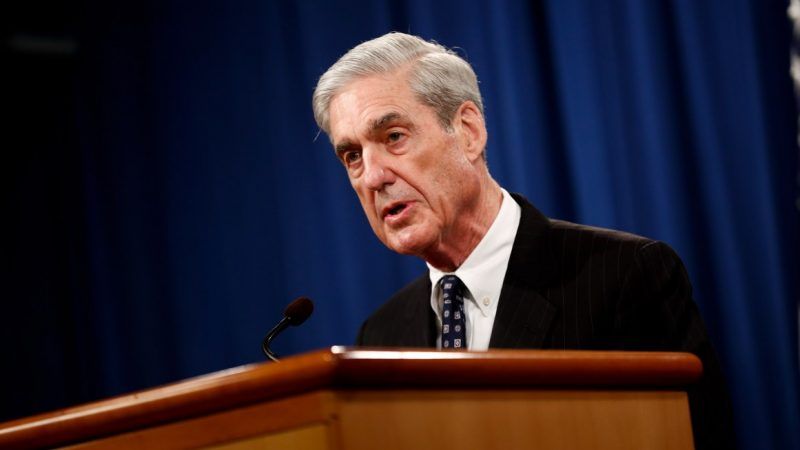Keep Expectations Low for Mueller's July Congressional Testimony
The special counsel has said he wants his report on Russian meddling in the election to speak for itself.

Former Special Counsel Robert Mueller has made it clear that he has said all he wants to about the results of his office's investigation of Russian meddling in the 2016 presidential election. Nevertheless, he will be appearing before a House committee hearing on July 17 to answer questions.
House Judiciary Committee Chairman Jerrold Nadler (D–N.Y.) and House Intelligence Committee Chairman Adam Schiff (D–Calif.) sent Mueller a subpoena to get him to appear in a public hearing. They stated in a joint press release yesterday afternoon, "Americans have demanded to hear directly from the Special Counsel so they can understand what he and his team examined, uncovered, and determined about Russia's attack on our democracy, the Trump campaign's acceptance and use of that help, and President Trump and his associates' obstruction of the investigation into that attack."
There is very, very little likelihood that anything new will come out of this hearing, though it will certainly capture the nation's attention. Not only has Mueller's report been released (minus redactions), he went through the effort to publicly come forward in May and give a statement summarizing the report for those who didn't read it, to essentially beg Americans to read the report, and to say he'd prefer to let the report speak for itself and be allowed to ride off into the sunset.
That, unsurprisingly, is not to be. Expect a lot of grandstanding from politicians looking to score points for Team Blue or Team Red because, as things currently stand, the impeachment of President Trump seems to be off the table.
Some predictions:
- Democratic candidates will be asked about the report and whether Trump should face impeachment in tonight's and tomorrow night's debates.
- Republicans in the hearing will play up Mueller's finding that they determined no cooperation between anybody on Trump's campaign staff and Russian officials' attempts to mess with the election or their successful hacking of Democratic campaign officials. Mueller will attempt to remind lawmakers again that they found a lot of evidence of Russians trying to meddle and that they will certainly try to meddle in the 2020 election and maybe Congress should focus on that.
- Democrats will try to trick Mueller to state that he believes that Trump did engage in obstruction of justice in his attempts to shut down the investigation. Mueller explained in his report that he did not make a recommendation one way or another about obstruction because he and his office accepted the argument that the president cannot be charged with crimes while in office. Because he doesn't believe the president could be charged, he said it would be inappropriate to make any recommendation, because there would be no mechanism to charge Trump and also no mechanism for Trump to defend himself from such charges. Mueller also said that if he believed Trump was innocent of any accusations of obstruction, he would say so. He did not, and he has pointed out that he did not. This has caused many people to conclude that Mueller would have likely recommended obstruction charges against Trump were Trump not the president. Democrats are going to try like heck to get him to say this. I predict he will not.
- This issue will crowd out other policy debates (even our ever-growing immigration nightmare) all the way through the 2020 election. Though nothing seems likely to actually happen prior to the election, the investigation of Trump will be seen as a massive "get out the vote" tool for both sides.
Show Comments (146)